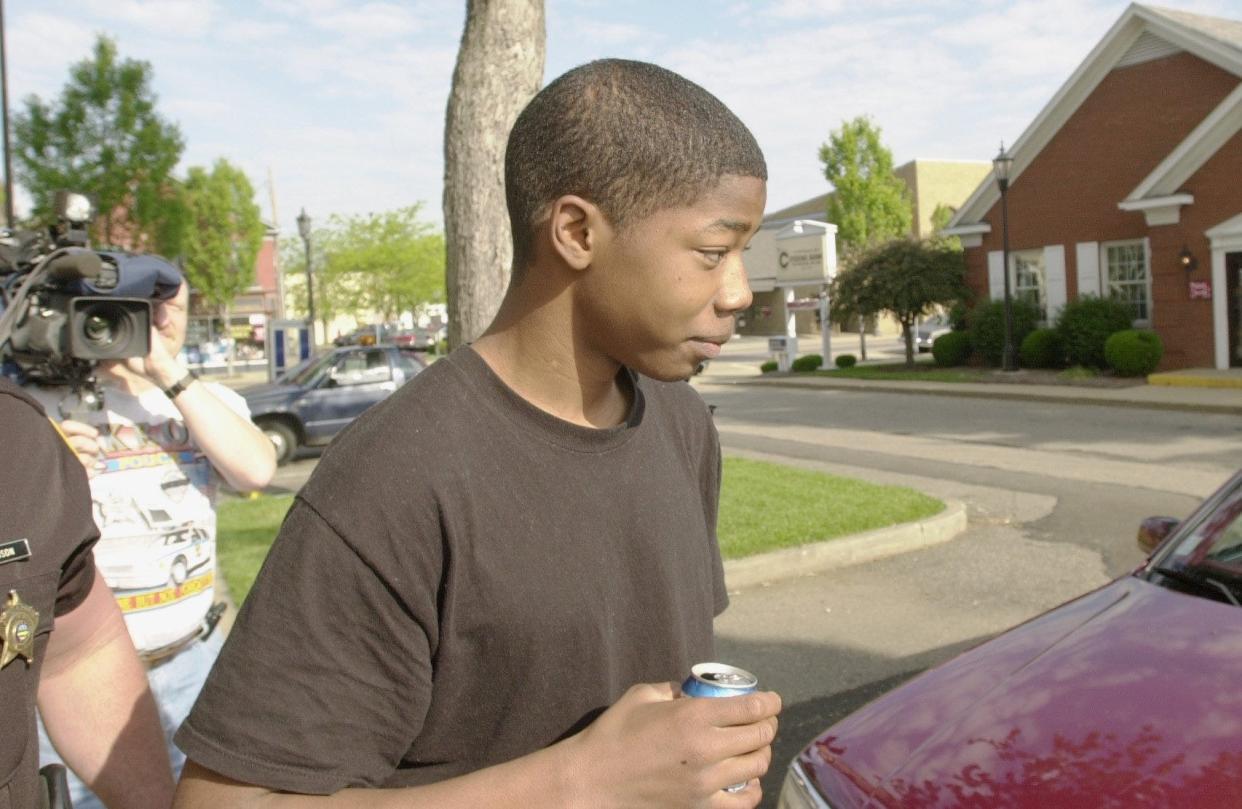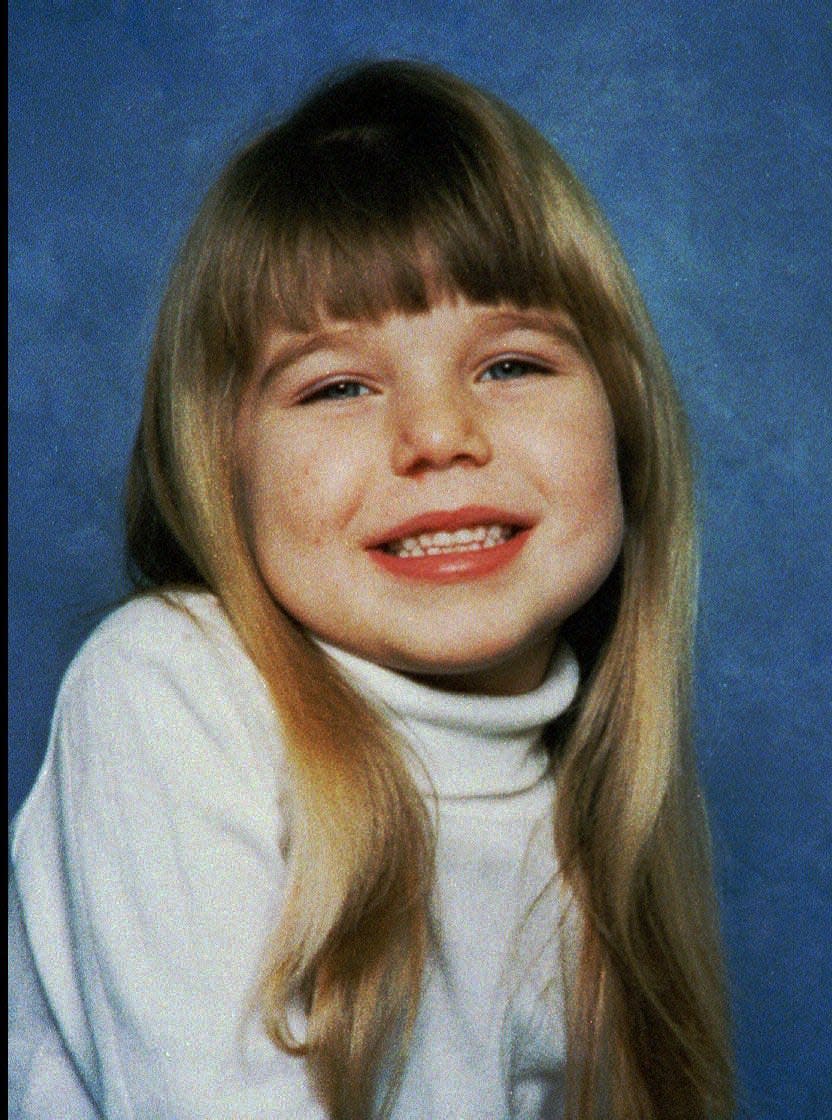ABC News '20/20' explores wrongful conviction in 1998 murder of New Philadelphia girl, 5

- Oops!Something went wrong.Please try again later.
NEW PHILADELPHIA — A national television news magazine devoted two hours Friday night to the unsolved murder of a 5-year-old New Philadelphia girl and the wrongful conviction of her neighbor, a Black boy who was 12 years old when he was charged.
The ABC News "20/20" episode, "Gone Before the Storm," answered old questions and raised new ones about the 1998 murder of Devan Duniver and the conviction of Anthony Harris, which was overturned by the 5th District Court of Appeals two years after the girl was stabbed to death.
Among the questions answered: Why did the young Harris confess to a crime he didn't commit?
In a 1999 interview, when ABC News anchor John Quiñones asked Harris, still a child, why he confessed to murder, he said, "I don't know."

'I want to go home'
In a more recent interview, conducted by Quiñones two years ago, the adult Harris articulated the reason, saying: "Basically, it was a trick. The investigator, he had basically told me that, 'If you confess to this murder, you could go home.' It's like, OK, well I'm over here scared. So I want to go home."
Quiñones observed that Harris was scared, "like any normal 12-year-old."
"Absolutely," Harris said in agreement. "That kind of pressure, being that young, you don't how to react. You're going to be scared automatically."
The appeals court later ruled that the statement Harris gave to Thomas Vaughn, then the police chief of Millersburg, was not admissible in court. On June 7, 2000, the court ruled that police had violated the youth's Fifth Amendment rights, he had been in police custody, the Miranda warning given to him had been improper and the confession had been coerced. The statement constituted the bulk of the evidence against Harris. No physical evidence linked the boy to the murder. The appeals court set aside the guilty verdict that had been reached by Tuscarawas County Juvenile and Probate Judge Linda A. Kate, who has since retired.
80-minute interrogation was compared to a physical attack
New Philadelphia police had brought in Vaughn to interrogate Harris. The questioning took place without a lawyer representing the suspect. His mother Cynthia Harris was allowed to watch through a window, but could not hear what was being said.
Geoffrey Mearns, one of Harris’ lawyers for his successful appeal and civil lawsuit, compared the 80-minute interrogation to a physical attack.
"To a 12-year-old boy, this was the equivalent of a police officer taking a hammer out, and saying, 'I'm going to hammer you on the hand until you confess to the bank robbery,'" Mearns said. "Of course, they didn't engage in that kind of physical coercion, but the mental and psychological pressure that they put on Anthony was essentially the legal equivalent."
Legal experts who spoke about the confession to "20/20" included Steven Drizin, a clinical professor of Law at Northwestern University's Pritzker School of Law, and the former legal director of the law school's Center on Wrongful Convictions.
"The entire setup of the interrogation is such as to create a sense of anxiety, a sense of dependence, a sense of isolation," Drizin said.
"When you hear that someone confessed to a crime, I think the automatic response of most people is, 'They're guilty. No one would confess to a murder if they didn't commit the murder,'" said Daniel Warren, Harris’ other lawyer for his appeal and civil lawsuit. "The reality is very different, and it's particularly different when you're talking about a kid."
What questions were raised by '20/20'
Among the questions raised by the "20/20" episode were: who killed Devan, where was she killed, and how did her body get to the place where she was found dead in a wooded area near her home.
Donna Wenger, Nancy Niarchos and Jim Milliken all said they searched by the area where Devan's body was found and didn't see her. They said they believe her body was dropped at the spot later.
Wenger, Niarchos and Milliken each testified as witnesses during the trial. They said on the "20/20" episode that they had seen a suspicious man lurking around the area during the search. Niarchos said Devan was found shortly after she saw the suspicious man. All three said he was wearing a gray flannel shirt, buttoned at the collar and cuffs on a hot day.
Tuscarawas County Prosecutor Ryan Styer told "20/20" in a statement that, after reviewing the findings of a special prosecutor who reviewed the Duniver case, he believes investigators "invested a lot of time conducting many interviews of witnesses and known persons of interest."
He also told the news program he feels there’s insufficient evidence for prosecution but has asked the sheriff to speak to the witnesses from the trial who were interviewed by "20/20."
Harris said he wants to help find Devan's killer.
He told "20/20" he is now a union ironworker after having served in the Marines.
The legal aftermath of the case included a 2003 federal civil rights lawsuit filed by Harris. In 2005, the insurers for three of the officers and the cities of New Philadelphia and Millersburg agreed to pay $1.5 million. Tuscarawas County was sued based on the alleged negligent actions of then-county prosecutor Amanda Spies Bornhorst. In 2008, Tuscarawas County settled the lawsuit for $2.2 million. The total paid to Harris was $3.7 million, minus costs and legal fees.
"Gone Before the Storm" is available on Hulu.
Reach Nancy at 330-364-8402 or nancy.molnar@timesreporter.com.
On Twitter: @nmolnarTR
This article originally appeared on The Times-Reporter: Man wrongfully convicted of murder at 13 speaks about case

